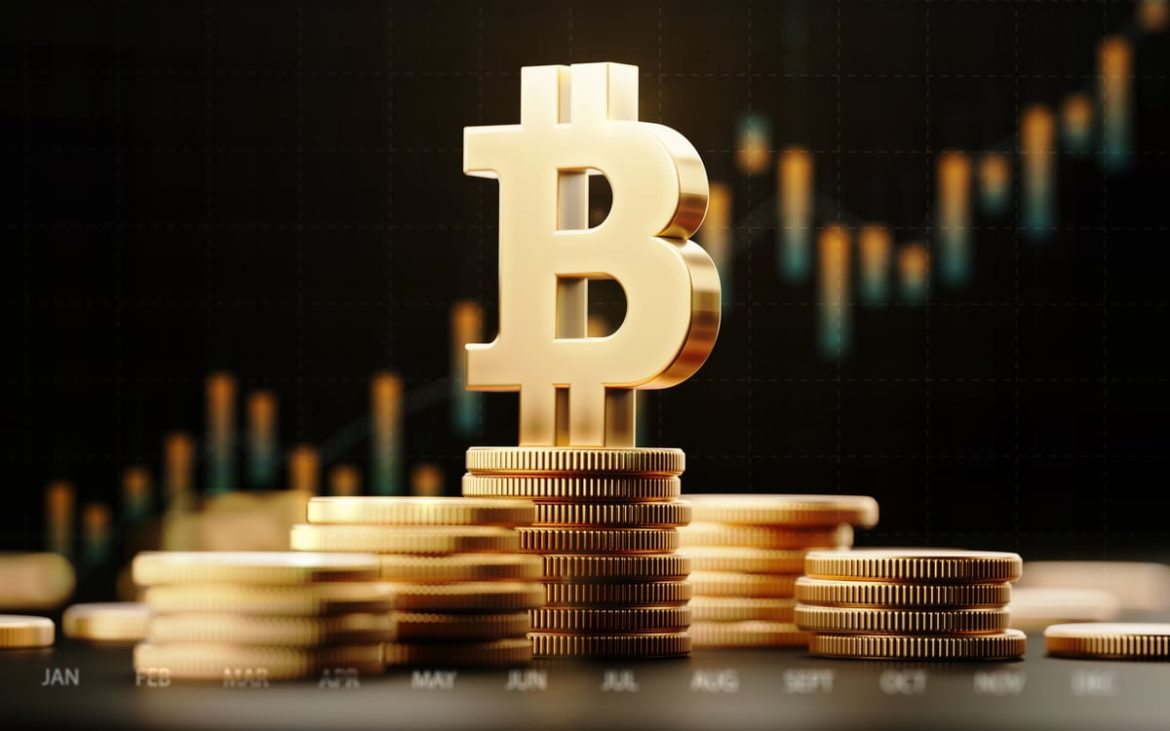Rephrase and rearrange the whole content into a news article of 350 words. Make sure whole content is in narrative style with h2 and h3 headings and there is no plagiarism involved compare with the following article: A lot has been made of the slew of new spot Bitcoin (CRYPTO: BTC) exchange-traded funds (ETFs) that came to the market earlier this month. They present an opportunity for more investors to gain access to the crypto asset class. Many longtime Bitcoin investors expect the ETFs to drive more demand for Bitcoin, sending the value of the limited-supply cryptocurrency higher.But investors should also look behind the scenes at how these new ETFs work. There may be some hidden opportunities for some companies to make money off these new funds despite not being front and center when it comes to issuing and marketing these ETFs.Here are two hidden winners behind the new Bitcoin ETFs.An important detail in how the SEC approved spot Bitcoin ETFsWhile the Securities and Exchange Commission (SEC) approved spot Bitcoin ETFs, it rejected a key detail in many proposals. It did not allow funds to use “in-kind” creations and redemptions, which is how many ETFs work.The way a typical ETF creates new shares relies on broker-dealers called authorized participants. When buyers want to more shares of the fund than exist today, the fund manager asks authorized participants to help create new shares.Image source: Getty Images.Under the in-kind model, the authorized participants buy each of the individual assets held by the ETF in the exact weighting held by the fund and deliver them to the ETF issuer. The issuer then creates shares of the ETF and sends them to the authorized participants, who turn around and sell them on the open market. When more people are selling the ETFs than buying them, the whole thing happens in reverse: Authorized participants deliver ETF shares to the issuer who provides the underlying assets in return.But the spot Bitcoin ETFs work differently. When there’s excess demand for the ETFs, authorized participants provide cash to the issuer. The issuer is then responsible for acquiring Bitcoin to create new shares.Using a cash model opened the door for tightly regulated banks to become authorized participants. One bank playing a major role in the new Bitcoin ETFs is JPMorgan Chase (NYSE: JPM). The bank is one of just a handful of firms that have signed on to be authorized participants. JPMorgan was named explicitly by BlackRock as one of its authorized participants for the iShares Bitcoin Trust. The BlackRock ETF is leading the pack of new Bitcoin ETFs, reaching $1.8 billion in assets within two weeks of launching the fund. With many predicting trillions of dollars flowing into these ETFs over time, JPMorgan could be a major beneficiary.Story continuesThat said, it currently represents a minuscule portion of JPMorgan’s business. However, the diversified bank is on relatively solid footing with leading positions as a retail bank as well as commercial and investment banking. While JPMorgan Chief Executive Officer Jamie Dimon isn’t the biggest fan of Bitcoin, he’s not afraid to go after opportunities when they present themselves. JPMorgan’s investments in the future, plus its solid balance sheet, make it a very attractive bank to own. Shares currently trade around 2.1 times tangible book value. That’s a substantial premium to its peers, but its leading position in the market may make it worth the price.Protecting all this Bitcoin is a big jobMost of the new Bitcoin ETFs aren’t going to take responsibility for storing and protecting the Bitcoin they acquire for shareholders. Instead, they’ll rely on a third-party custodian to secure their Bitcoin. These custodians hold Bitcoin in “cold storage,” instead of an online wallet, making it much less likely a hacker will be able to steal those funds.Of the 11 funds approved by the SEC, eight of them will use Coinbase Global (NASDAQ: COIN) as their custodian. In exchange for its services, Coinbase will collect a fee for assets under custody. One analyst estimates its current custody management fee for institutional investors is 0.1%. Coinbase hasn’t disclosed what its fees are for any exchange-traded products.Custodial fee revenue accounted for about 2.5% of Coinbase’s total revenue through the first nine months of 2023. The new ETFs are likely putting pressure on Coinbase’s take rate. With funds like the iShares Bitcoin Trust charging an expense ratio of just 0.25% there’s not a lot of room for BlackRock to profit at Coinbase’s prevailing custody fee rate. The volume it brings to the table may be worth it, though.An inflow of custodial funds could be a substantial source of growth for Coinbase. If the ETF inflows have a pronounced impact on the value of Bitcoin, pushing it higher, it could provide a double benefit for Coinbase as the value of its assets under custody increases while the total amount of Bitcoin may stay relatively stable. That said, if an increase in custody assets comes at the expense of actual trading on its platform, it may not be a huge benefit for Coinbase. Still, it’s better to be the top ETF custodian than not participate in the market shift at all.Coinbase’s stock is already very closely tied to Bitcoin. As the price of Bitcoin increases, trading activity on its platform increases. But as Bitcoin matures as an investable asset, Coinbase could come out ahead. It might be worth adding shares for some investors who expect its role in the Bitcoin ETFs to have an additive impact on its bottom line over the long run.Should you invest $1,000 in JPMorgan Chase right now?Before you buy stock in JPMorgan Chase, consider this:The Motley Fool Stock Advisor analyst team just identified what they believe are the 10 best stocks for investors to buy now… and JPMorgan Chase wasn’t one of them. The 10 stocks that made the cut could produce monster returns in the coming years.Stock Advisor provides investors with an easy-to-follow blueprint for success, including guidance on building a portfolio, regular updates from analysts, and two new stock picks each month. The Stock Advisor service has more than tripled the return of S&P 500 since 2002*.See the 10 stocks *Stock Advisor returns as of January 22, 2024 JPMorgan Chase is an advertising partner of The Ascent, a Motley Fool company. Adam Levy has positions in Bitcoin. The Motley Fool has positions in and recommends Bitcoin, Coinbase Global, and JPMorgan Chase. The Motley Fool has a disclosure policy.The Hidden Winners Behind the New Bitcoin ETFs. Should You Buy Them Instead? was originally published by The Motley Fool

I have been writing about crypto for over two years. I have a vast amount of experience in the industry and my work has been featured on some of the biggest publications in the space.


